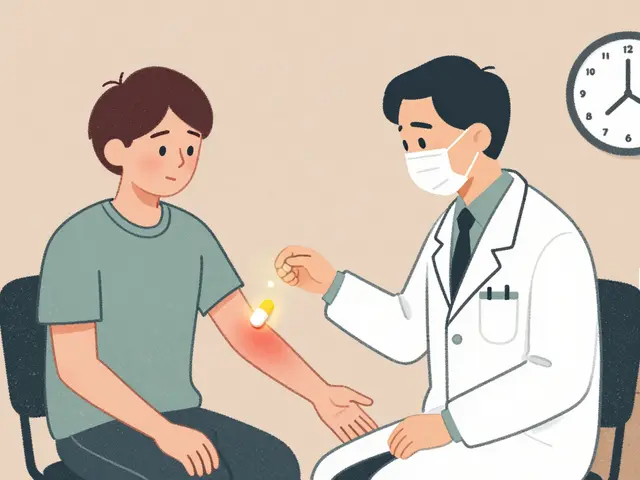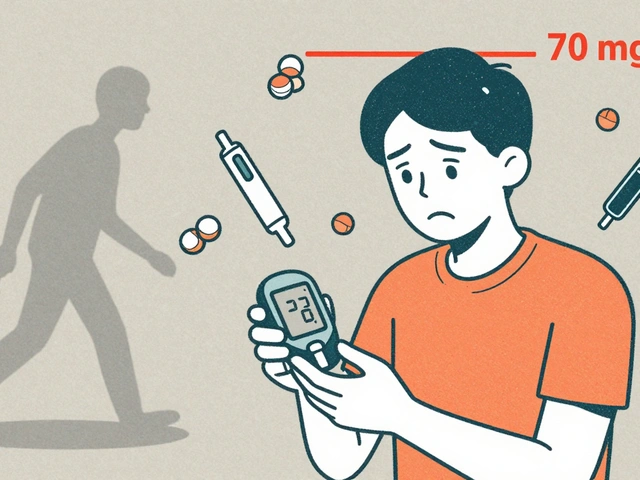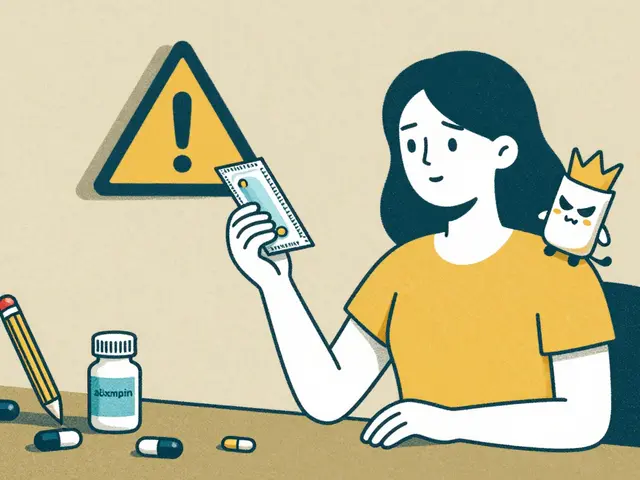Antimalarial drugs: what they do and when you need them
Malaria can show up weeks or even months after you leave an infected area. That happens because some parasites hide in the liver. Knowing which antimalarial drugs treat blood infection versus liver stages matters a lot.
This page breaks down the common options, their usual risks, and simple rules to follow before, during, and after travel. Use this as a clear primer, not a prescription. Always check with a clinician or travel clinic before taking any medicine.
Common antimalarial drugs and how they differ
Chloroquine — once the standard, now useful only in areas without resistance. It treats blood-stage malaria but won’t clear dormant liver forms of P. vivax or P. ovale.
Mefloquine — effective in many places but can cause vivid dreams, anxiety, or mood changes in some people. Doctors avoid it in patients with certain psychiatric or seizure histories.
Doxycycline — used for prevention in many regions. It also protects against some other travel infections. Side effects include increased sun sensitivity and stomach upset. Not suitable for pregnant people or young children.
Atovaquone-proguanil (Malarone) — well tolerated by many travelers and started shortly before travel. It treats blood stages and is often recommended for shorter trips to drug-resistant areas.
Primaquine — the drug used to kill dormant liver stages (relapses from P. vivax or P. ovale). It requires a simple G6PD test first because it can cause a dangerous reaction in people with G6PD deficiency.
Artemisinin-based therapies — main choice for treating active malaria in many countries. They clear parasites from the blood quickly and are used where resistance to older drugs is common.
Practical tips for travelers and people on treatment
Match the drug to the place. Malaria strains and resistance change by region. Check current country guidance or ask a travel clinic.
Start and stop at the right time. Some medicines must begin days before travel and continue after you return. Skipping doses raises failure and resistance risk.
Know the side effects. If a drug causes troubling mood changes, skin reactions, or severe stomach issues, stop and seek medical advice. Don’t assume mild nausea is the only effect — some reactions need urgent care.
Test for G6PD before primaquine. That test prevents a rare but serious blood problem.
Keep prevention layered. Use insect repellent, bed nets, and cover-up clothing. Drugs lower your risk but don’t replace bite prevention.
If you get a fever after travel, tell the doctor your travel history right away. Malaria can progress fast; early testing and treatment save lives.
Questions about a specific drug or your itinerary? Talk to a travel health clinic or your doctor. They’ll pick the safest, most effective option for your trip and health profile.

- Apr 22, 2025
- Posted by Cillian Osterfield
Clindamycin Phosphate: A Surprising Ally Against Malaria
Clindamycin phosphate, usually known for fighting bacterial infections, is actually useful in treating malaria—especially when used with other antimalarial drugs. This article explains how clindamycin phosphate works against malaria, when it’s used, and why it’s not a first-line option. You'll get practical tips on who might benefit from this treatment, real-world examples, and how it fits into global malaria strategies. Get ready to see this antibiotic in a whole new light.
Categories
- Health and Wellness (72)
- Medications (69)
- Health and Medicine (28)
- Pharmacy Services (12)
- Mental Health (9)
- Health and Career (2)
- Medical Research (2)
- Business and Finance (2)
- Health Information (2)
©2026 heydoctor.su. All rights reserved





